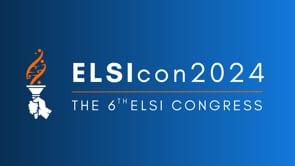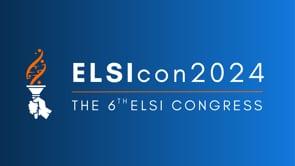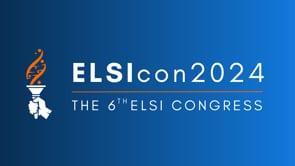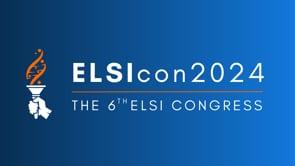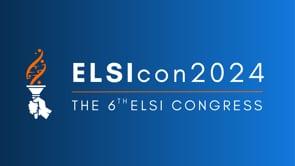Key stakeholders’ moral attitudes on somatic gene editing for inherited cardiomyopathy: a qualitative interview study
ELSIcon2024 • Paper • June 12, 2024
Authors:
Jannieke Simons, MA (she/her/hers) - University Medical Center Utrecht (Netherlands)
Introduction: This paper aims to unravel the diverse array of moral attitudes held by key stakeholders involved in or affected by the development and potential future implementation of a somatic gene editing therapy for inherited cardiomyopathy. Considering the early stage of therapy-development, now is the right time for critical appraisal of, amendments and adaptations to these advancements, and to avoid mere end-of-development-pipeline reflections.
Method: We expect to conduct a total of around 40 semi-structured in-depth interviews with various stakeholders residing in the Netherlands, Belgium and potentially also the United Kingdom. Five stakeholder groups were identified: (1) patients and carriers (“users”), (2) bench researchers (“developers”); (3) cardiologists (“providers”); (4) pharmaceutical industry personnel (“suppliers”); and (5) public health officials (“regulators”). Topics that will be addressed during the interviews are the desirability of a somatic gene editing therapy for inherited cardiomyopathy, the conditions and considerations for potential future first-in-human trials, and perspectives on fair access to the potential future treatment.
Results: Through thematic analysis of the stakeholders’ interviews, a more comprehensive understanding of the ethical landscape surrounding somatic gene editing therapy for inherited cardiomyopathy will emerge. Also, we will bring forth the similarities and differences in underlying values amongst these five identified stakeholder groups.
Conclusions: This qualitative in-depth interview study will provide valuable insights for further development, first-in-human trial design, and clinical implementation of a somatic gene editing therapy for inherited cardiomyopathy. Moreover, insights from this study will contribute to the identification of unresolved ethical questions in the ever-evolving realm of genomics research.
At the bottom right corner of the video, you can click the “CC” button to display closed captions. You can also click the icon to the right of the “CC” button to display the transcript.
Tags
Videos in Series
-
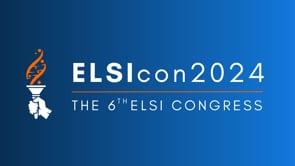
The 6th ELSI Congress - ELSIcon2024 - Genomics Research and Childhood Obesity through the Lenses of Equity: Reassessing Responsibilities and Costs between Families and Society
-
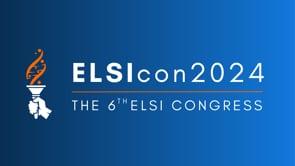
The 6th ELSI Congress - ELSIcon2024 - Cross-Disciplinary Research and Public Engagement on Eugenic Sterilization: Mixed Methods, Data Visualization, and Cross-State Comparisons
-
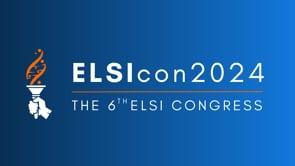
The 6th ELSI Congress - ELSIcon2024 - ELSIcon2024: Attitudes, Values, Preferences, Oh My! What Stated Preference Methods Can Bring to ELSI Research
-
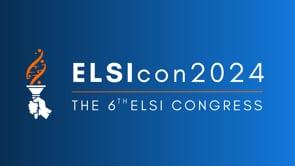
The 6th ELSI Congress - ELSIcon2024 - The Legal Weaponization of Racialized DNA
-
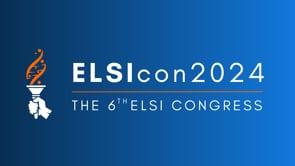
The 6th ELSI Congress - ELSIcon2024 - ELSIcon2024: Experiential ethics training for genomic researchers
-
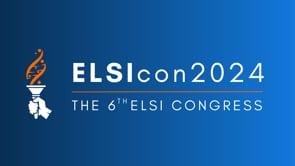
The 6th ELSI Congress - ELSIcon2024 - Patient perceptions of duties and responsibilities in variant reclassification and recontact process
-
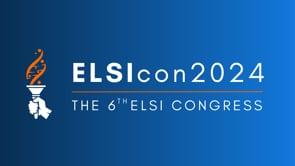
The 6th ELSI Congress - ELSIcon2024 - Re-envisioning Translational Equity in Pediatric Gene Therapy Research
-
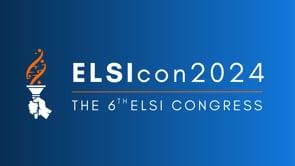
The 6th ELSI Congress - ELSIcon2024 - ELSI of implementing clinical genetic testing in kidney disease and transplantation care
-

The 6th ELSI Congress - ELSIcon2024 - Experiential ethics training for genomic researchers
-
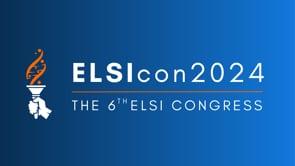
The 6th ELSI Congress - ELSIcon2024 - Psychiatric Polygenic Risk Scores in Reproductive Decision-Making: Perspectives from Adults with Psychiatric Conditions
-
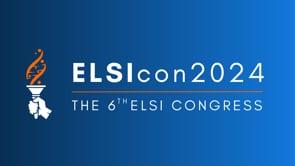
The 6th ELSI Congress - ELSIcon2024 - Reporting practices for sexual and gender minority demographic information in NIH-supported genomic studies
-
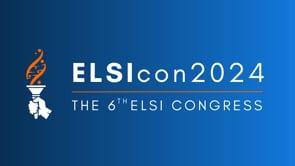
The 6th ELSI Congress - ELSIcon2024 - The Failed Protection of Proposed Changes to HIPAA
-
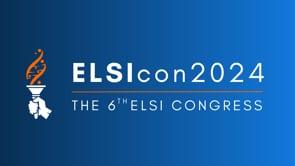
The 6th ELSI Congress - ELSIcon2024 - Racial Politics and Health Equity in Genome-Editing Therapeutics
-
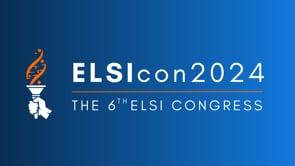
The 6th ELSI Congress - ELSIcon2024 - Assessing the impacts of the major human genome editing (HGE) reports on the governance landscape
-
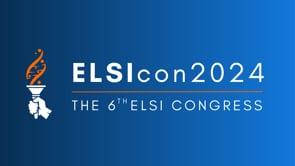
The 6th ELSI Congress - ELSIcon2024 - Contemporary bioethics and policy changes for children with profound disabilities: Cardiac Surgery in Children with Trisomy 18
-

The 6th ELSI Congress - ELSIcon2024 - ELSIcon2024 Plenary: Scientific, Regulatory, and Ethical Implications of Interventional Genetics and Individualized Medicines
-
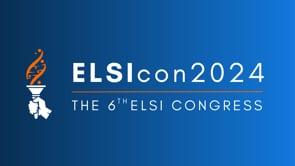
The 6th ELSI Congress - ELSIcon2024 - From Person-Centered to Family-Centered: Navigating Practical and Ethical Issues in Health System-Led Contact for Cascade Screening
-
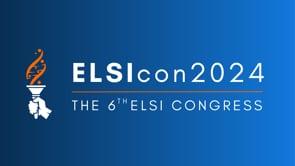
The 6th ELSI Congress - ELSIcon2024 - Weighing the Benefits, Harms, and Limitations of Genetic Testing in the Workplace
-
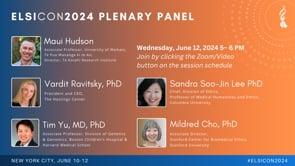
The 6th ELSI Congress - ELSIcon2024 - ELSICon2024: Closing Plenary Panel
-
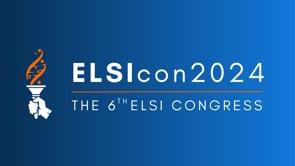
The 6th ELSI Congress - ELSIcon2024 - The ELSI of Engagement: Benefits and Challenges to Achieving a Just Genomics
-
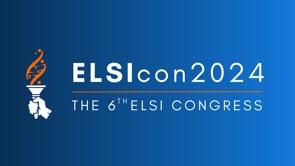
The 6th ELSI Congress - ELSIcon2024 - Assumptions of value: Exploring normative aspects of newborn genomic sequencing in decision analytic models
-
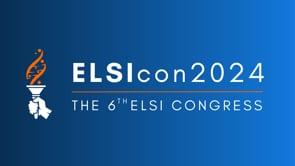
The 6th ELSI Congress - ELSIcon2024 - Increasing Diversity in Genetic Databases: Lessons Learned from 20 Years of Slow Progress
-

The 6th ELSI Congress - ELSIcon2024 - ELSIcon2024: Racial Politics and Health Equity in Genome-Editing Therapeutics
-
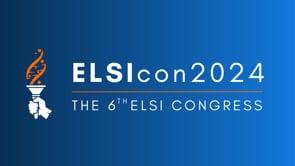
The 6th ELSI Congress - ELSIcon2024 - ELSIcon2024: Identifying and Dismantling Systemic Ableism in Prenatal Screening
-
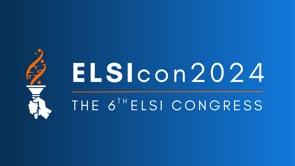
The 6th ELSI Congress - ELSIcon2024 - ELSIcon2024: Anticipating social and interpersonal influence of polygenic scores in future clinical settings
-
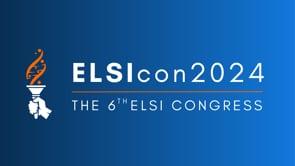
The 6th ELSI Congress - ELSIcon2024 - ELSIcon2024: Artificial intelligence for precision medicine: How close to ‘personalized’ can we really get?
-

The 6th ELSI Congress - ELSIcon2024 - ELSIcon2024: Global Perspectives on Implementing Clinical Genomic Sequencing Equitably, Effectively and Efficiently
-
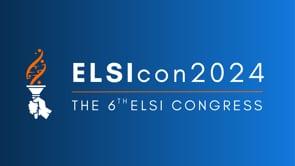
The 6th ELSI Congress - ELSIcon2024 - ELSIcon2024: Digital solutions to deliver genomic medicine: Taking a closer look at what’s under the hood
-
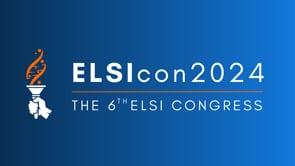
The 6th ELSI Congress - ELSIcon2024 - ELSIcon2024: Prenatal genetic information as preparation: Parents and clinicians reimagining benefits for families and future children
-

The 6th ELSI Congress - ELSIcon2024 - ELSIcon2024 Plenary: What Can AI-ethics Learn from Gen-ethics: ELSI Lessons for the Coming Wave
-
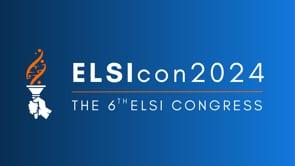
The 6th ELSI Congress - ELSIcon2024 - ELSIcon2024: Impact of Returning Genomic Results Related to Adult-Onset Conditions to Pediatric Patients
-
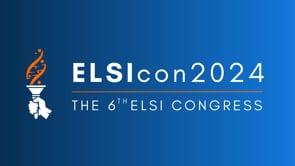
The 6th ELSI Congress - ELSIcon2024 - ELSIcon2024: The Ethics of “Traceback Testing”: Perspectives of First-Degree Relatives of Deceased Individuals on Privacy, Consent and Benefit.
-
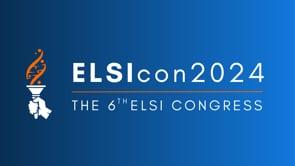
The 6th ELSI Congress - ELSIcon2024 - ELSIcon2024: Clinician Perspectives on Polygenic Risk Scores in Child and Adolescent Psychiatry: Current Concerns and Future Utility
-
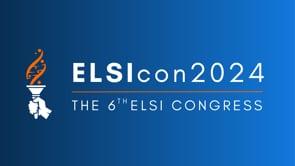
The 6th ELSI Congress - ELSIcon2024 - ELSIcon2024: Legal Protections Against Genetic Discrimination: Awareness Among Adults and Adolescents with Psychiatric Conditions and Caregivers
-
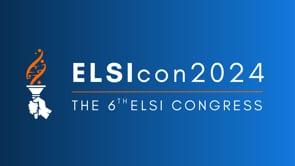
The 6th ELSI Congress - ELSIcon2024 - ELSIcon2024: Nothing About Us Without Us: Sharing Relevant Results with Communities that Provide Genomic Data
-
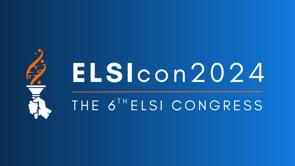
The 6th ELSI Congress - ELSIcon2024 - ELSIcon2024: Minoritized Community Recommendations for Ethical Conduct of Social Epigenomic Research
-
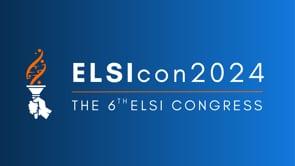
The 6th ELSI Congress - ELSIcon2024 - ELSIcon2024: Beneficial engagement with Indigenous Peoples: A survey of Tribal research governance in the United States
-

The 6th ELSI Congress - ELSIcon2024 - ELSIcon2024: Differences between private, government, and consortium data stewards and their impact on genetic research with diverse ancestra
-
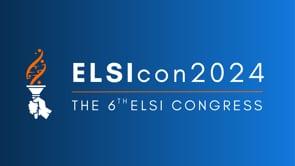
The 6th ELSI Congress - ELSIcon2024 - ELSIcon2024: Proper Parents: Poverty, Disability, Race, and Reproductive Control after the Eugenics Era
-

The 6th ELSI Congress - ELSIcon2024 - ELSIcon2024 Plenary: Indigenous Data Sovereignty: Finding Pathways for Equitable Benefit Sharing from Genomic Science
-
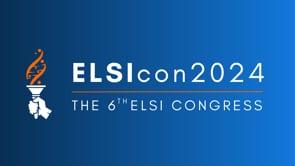
The 6th ELSI Congress - ELSIcon2024 - ELSIcon2024: Whose Science? Whose Knowledge? Equitable Partnerships and Diverse Teams for Just Genomic Research
-
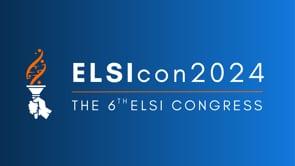
The 6th ELSI Congress - ELSIcon2024 - ELSIcon2024: Incorporating Equity Considerations in Health Technology Assessment and Funding of Genome Medicine Technologies in Ontario, Canada
-
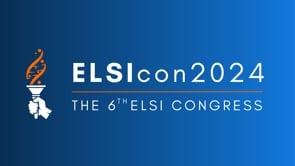
The 6th ELSI Congress - ELSIcon2024 - ELSIcon2024: Analyzing Gamete Donation Screening Guidelines and Their Impact on Disability
-
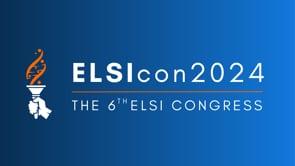
The 6th ELSI Congress - ELSIcon2024 - ELSIcon2024: From liminality to liberation: FACTS as a case study for addressing VUSs and prioritizing equity in genomic medicine
-
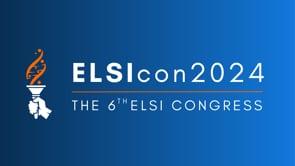
The 6th ELSI Congress - ELSIcon2024 - ELSIcon2024: Exploring Ethical Dialogues in genomics research: A Qualitative Analysis of the Drama of DNA Method in South Africa.
-
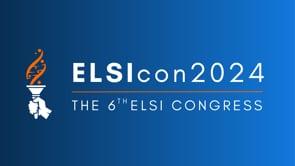
The 6th ELSI Congress - ELSIcon2024 - ELSIcon2024: Rethinking the Rule Against Testing Children for Adult-Onset Conditions: A New Zealand Case Study
-
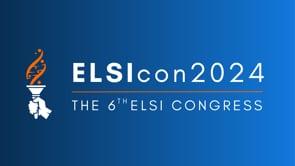
The 6th ELSI Congress - ELSIcon2024 - ELSIcon2024: Genomics Through the Eyes of Others

